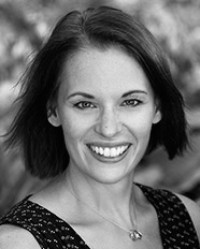 Tami Micsky, DSW, MSSA, LSW, CT, is a licensed social worker and certified thanatologist and has been working with children, teens, and young adults for over twenty years.
Tami Micsky, DSW, MSSA, LSW, CT, is a licensed social worker and certified thanatologist and has been working with children, teens, and young adults for over twenty years.
Her courses on Continued Counseling, Continued Psychology, and Continued Social Work cover grief-related topics and also the use of photovoice method for social work education and practice.
Micsky is an assistant professor of social work at Slippery Rock University, an adjunct professor at Mercyhurst and Aurora Universities, and a contributing faculty member in the MSW program at Walden University.
She is a member of the National Association of Social Workers, the Council on Social Work Education, the Association of Baccalaureate Program Directors, and the Association of Death Education and Counseling.
“I have been continually reminded that loss is a pervasive and unavoidable event in most individuals' lives. I believe it is imperative to legitimize loss experiences and validate grief reactions through education and supportive services.”
Why did you pursue the field of social work?
Like many who pursue social work, I entered the field of social work to make a difference and help people. I wanted to work for social justice and be an advocate for children.
Where has your career journey taken you?
My journey in the social work profession started in the child welfare field as a caseworker, court coordinator, and supervisor. I continued to work with children and families experiencing loss and traumatic events as the volunteer coordinator and child grief specialist at a grieving center. I have also worked as an outpatient therapist for children and teens and spent some time as a social worker in a dialysis clinic. After working with children and families for nearly 20 years, I had the opportunity to work with young adults as a counselor and director of disability services in higher education. This led me to pursue my doctorate in social work and my current role as the BSSW program director and assistant professor at Slippery Rock University of Pennsylvania.
What makes you so passionate about your field?
The social work profession is full of opportunity and flexibility. Social workers can work with a variety of populations and levels of practice. We have a unique focus on the person in the environment, advocacy, and social justice.
What inspired your specific expertise in grief?
My interest and expertise in loss and grief has been a thread throughout my social work career. Although my formal training in grief and loss began with my work at the grieving center, it truly began with my work in child protection. The child welfare field is unfortunately plagued with experiences of loss—for children, families, foster families, adoptive families, and child welfare staff. It is often unrecognized, as are many loss experiences, but we know that individuals who experience significant change, loss, and trauma will display grief reactions. As I've continued my education and had opportunities to share my knowledge and experiences, I have been continually reminded that loss is a pervasive and unavoidable event in most individuals' lives. I believe it is imperative to legitimize loss experiences and validate grief reactions through education and supportive services.
“We have all experienced loss during the COVID-19 pandemic—both concrete, objective losses and subjective, more symbolic-type losses. In addition, and maybe even more impactful, is the loss of our assumptions about the world.”
How is grief response particularly relevant in pandemic times?
Loss during the pandemic is unavoidable. Some may attempt to avoid it, deny it, or even fight it. But we have all experienced loss during the COVID-19 pandemic—both concrete, objective losses and subjective, more symbolic-type losses. In addition, and maybe even more impactful, is the loss of our assumptions about the world. Our beliefs about security, safety, health, and overall stability have been challenged and no longer make sense. The COVID-19 pandemic has challenged our assumptions and the illusions about personal control, illness, death, and what was once considered normal. In essence, we are grieving the loss of the world as we once knew it.
Why is online continuing education important, and why do you enjoy presenting for Continued?
I am thankful to work with Continued to provide education, particularly related to loss and grief. Social issues, policies, and interventions are constantly changing, and we have an ethical obligation to maintain our practice knowledge and skills. Continued makes high-quality continuing education accessible and offers a variety of useful topics.
View Micsky's courses on Continued Counseling, Continued Psychology, and Continued Social Work